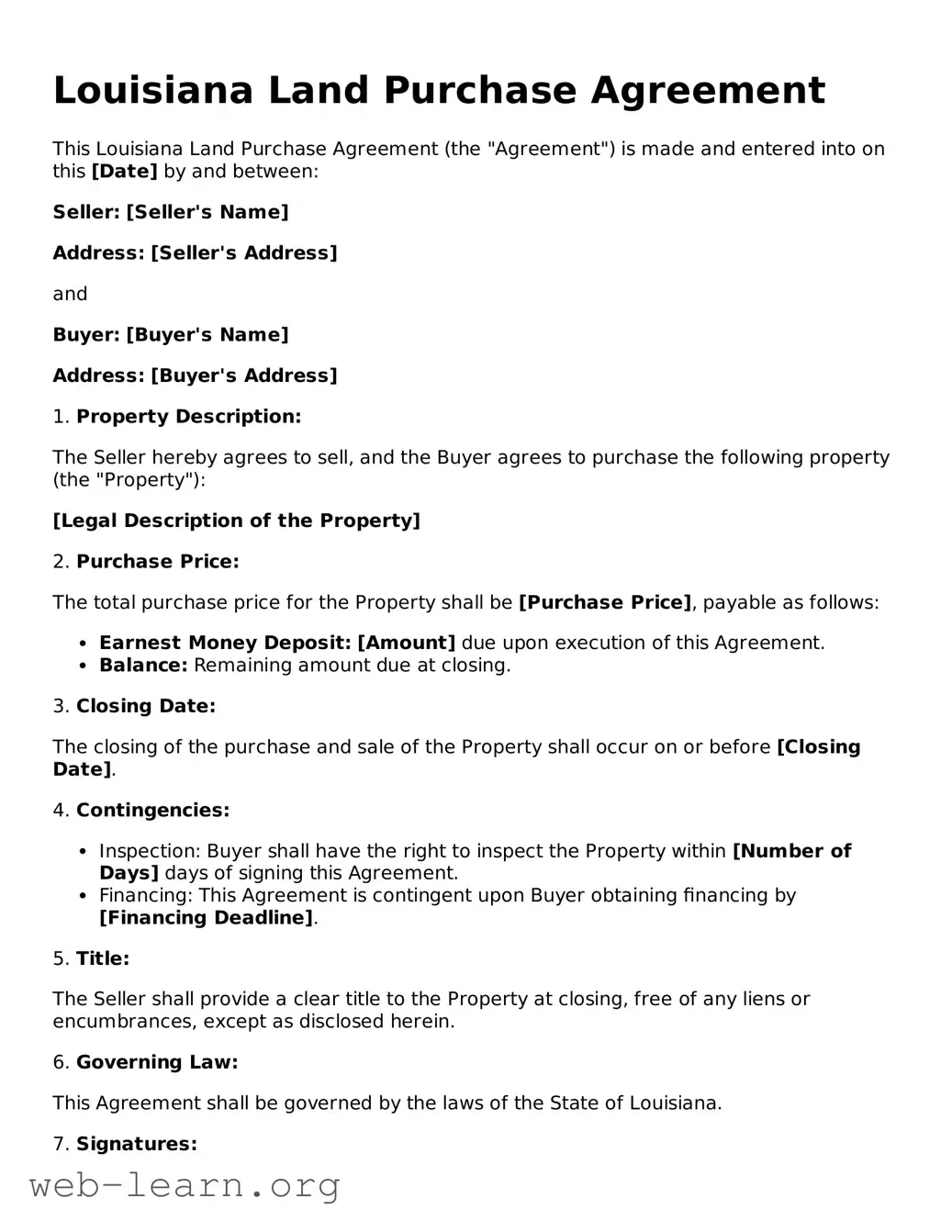Louisiana Land Purchase Agreement
This Louisiana Land Purchase Agreement (the "Agreement") is made and entered into on this [Date] by and between:
Seller: [Seller's Name]
Address: [Seller's Address]
and
Buyer: [Buyer's Name]
Address: [Buyer's Address]
1. Property Description:
The Seller hereby agrees to sell, and the Buyer agrees to purchase the following property (the "Property"):
[Legal Description of the Property]
2. Purchase Price:
The total purchase price for the Property shall be [Purchase Price], payable as follows:
- Earnest Money Deposit: [Amount] due upon execution of this Agreement.
- Balance: Remaining amount due at closing.
3. Closing Date:
The closing of the purchase and sale of the Property shall occur on or before [Closing Date].
4. Contingencies:
- Inspection: Buyer shall have the right to inspect the Property within [Number of Days] days of signing this Agreement.
- Financing: This Agreement is contingent upon Buyer obtaining financing by [Financing Deadline].
5. Title:
The Seller shall provide a clear title to the Property at closing, free of any liens or encumbrances, except as disclosed herein.
6. Governing Law:
This Agreement shall be governed by the laws of the State of Louisiana.
7. Signatures:
This Agreement may be executed in counterparts, and electronic signatures are considered valid.
__________________________
Seller's Signature
Date: [Date]
__________________________
Buyer's Signature
Date: [Date]
This Agreement represents the entire understanding between the parties regarding the sale of the Property. Any modifications must be in writing and signed by both parties.
